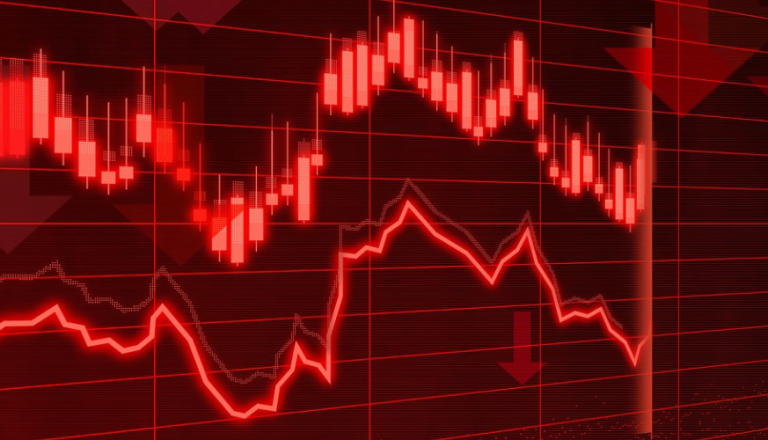
Price hikes confirm the adverse scenarios on inflation for 2022, which, in May, may well exceed 11% in Greece. Eurostat data on inflation across the Eurozone and the fuel and commodity price surge in Greece forebode a new all-time high for the national price index, as well.
According to the European statistics agency, inflation in Greece soared to a new high in May – to 10.7% from 9.1%, in April. However, the finance ministry’s forecasts – when submitting the Stability Program to the Commission – do not indicate that this year’s inflation will end with a double-digit rate. Inflation will rise this year to 5.6% and the consumer price index will rise by 1.6%, in 2023, and by 1.7%, in 2024 and 2025.
Energy costs have pushed up fixed expenses for households and businesses, while, more specifically, travel expenses – due to soaring gasoline prices – have skyrocketed. Since February, the price of unleaded has risen by more than 20% and the market is sounding the alarm about a rise in petrol prices above 3 euros per liter.
According to the data, the average price of regular unleaded from 1.892 euros per liter, on 24 February, has soared to 2.277 euros per liter, on 30 May.
The estimates of analysts
Analysts estimate that inflation has not reached its peak, foreshadowing the recording of double-digit rates in the coming months, expecting a deceleration towards 2023. The intensification of inflation makes the Greek governement work out various alternative plans to absorb the costs based on the economy’s resilience.
According to the Ministry of Finance, the Greek state has provided: 43 billion euros of support measures to come up against health crisis, subsidies amounting to 3.5 billion euros so far to help households and businesses tackle the increased energy costs, support for vulnerable households, support for the primary sector, fuel subsidies amounting to 900 million euros and a double 9.7% increase in the minimum wage, in 2022. A few days ago, the European Commission’s report on Greece photographed the submission of a supplementary budget in autumn, the aim of which is to decrease the effects petrol price rises have on consumer incomes. The Greek government is working on targeted measures of around 800 million euros, which have not yet been granted.
As reflected in the Eurostat data published yesterday, the price hikes “lifted” inflation in Greece to the fifth highest position in the Eurozone, behind Estonia’s 20.1%, Lithuania’s 18.5%, Latvia’s 16.4%, and Slovakia’s 11.8%. Inflation in the Eurozone jumped to 8.1%, in May, from 7.4%, in April, against estimates of a 7.7% rise. Right behind Greece are the Netherlands with an inflation rate of 10.2%, Belgium at 9.9% and Luxembourg at 9.1%. As for the other southern countries, Italy had inflation of 7.3% in May, Spain 8.5% and Portugal 8.3%. The lowest inflation rate for May was again recorded in Malta at 5.6%, while France’s inflation was slightly higher at 5.8%. Germany moved considerably higher with an inflation rate of 8.7%.
Analysts’ forecasts do not point to a decline but they support that eurozone inflation has not yet peaked, despite a new record high of 8.1%, in May. This was reported yesterday by Goldman Sachs’ chief economist for Europe, who also expects the European Central Bank to raise interst rates in the coming meetings. Speaking to CNBC, Stern said that Goldman Sachs expects the European Central Bank to raise interest rates by 25 basis points at each meeting over the next 12 months.
Latest News

WTTC: Travel & Tourism to Create 4.5M New Jobs in EU by 2035
This year, international visitor spending is set to reach 573 billion euros, up by more than 11% year-on-year

IMF: US Tariffs Shake Global Economy, Outlook Downbeat
IMF slashes global growth forecast to 2.8% as U.S. tariffs create uncertainty and ‘negative supply shock

First Step Towards New Audiovisual Industry Hub in Drama
The project is set to contribute to the further development of Greece’s film industry and establish Drama as an audiovisual hub in the region

Airbnb Greece – Initial CoS Ruling Deems Tax Circular Unlawful
The case reached the Council of State following annulment applications filed by the Panhellenic Federation of Property Owners (POMIDA)

Mitsotakis Unveils €1 Billion Plan for Housing, Pensioners, Public investments
Greek Prime Minister Kyriakos Mitsotakis has announced a new set of economic support measures, worth 1 billion euros, aiming to provide financial relief to citizens.

Alter Ego Ventures Invests in Pioneering Gaming Company ‘Couch Heroes’
Alter Ego Ventures' participation in the share capital of Couch Heroes marks yet another investment by the Alter Ego Media Group in innovative companies with a focus on technology.

Corruption Still Plagues Greece’s Driving Tests
While traffic accidents continue to claim lives on Greek roads daily, irregularities and under-the-table dealings in the training and testing of new drivers remain disturbingly widespread

Pope Francis Died of Stroke and Heart Failure Vatican Confirms
As news of the official cause of death spread, tributes poured in from across the globe. The 1.4 billion-member Catholic Church is united in grief, remembering a pope who championed inclusion, justice, and compassion

Increase in Both Museum Visits, Revenues for 2024
As expected, the Acropolis was the top archeological site in the country, followed by Sounion, Mycenae, the ancient theater of Epidaurus, and Vergina in northern Greece

Where Greece’s Tourists Come From: A Look at 2025’s Top Visitor Markets
The United Kingdom continues to hold the top spot as the largest source of incoming tourism, with 5.6 million seats booked for Greece this summer — up 2.2% from last year. This accounts for 20% of all international air traffic to Greece












![Πλημμύρες: Σημειώθηκαν σε επίπεδα ρεκόρ στην Ευρώπη το 2024 [γράφημα]](https://www.ot.gr/wp-content/uploads/2025/04/FLOOD_HUNGRY-90x90.jpg)



![Ξενοδοχεία: Μεγάλο το ενδιαφέρον για επενδύσεις στην Ελλάδα – Η θέση της Αθήνας [γραφήματα]](https://www.ot.gr/wp-content/uploads/2025/03/Athens-hotels-90x90.jpg)
























 Αριθμός Πιστοποίησης
Αριθμός Πιστοποίησης